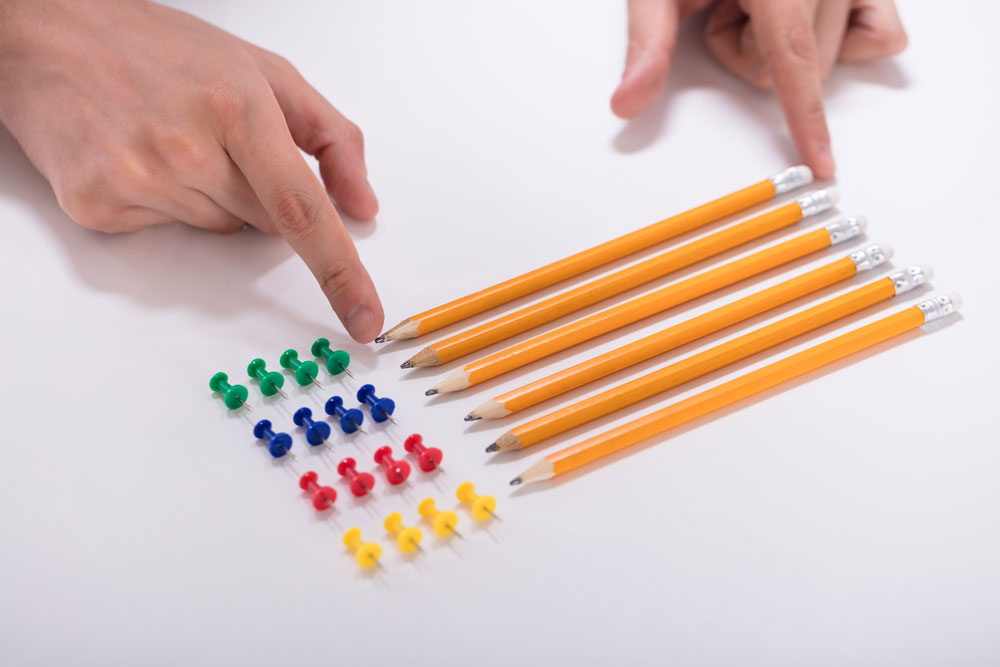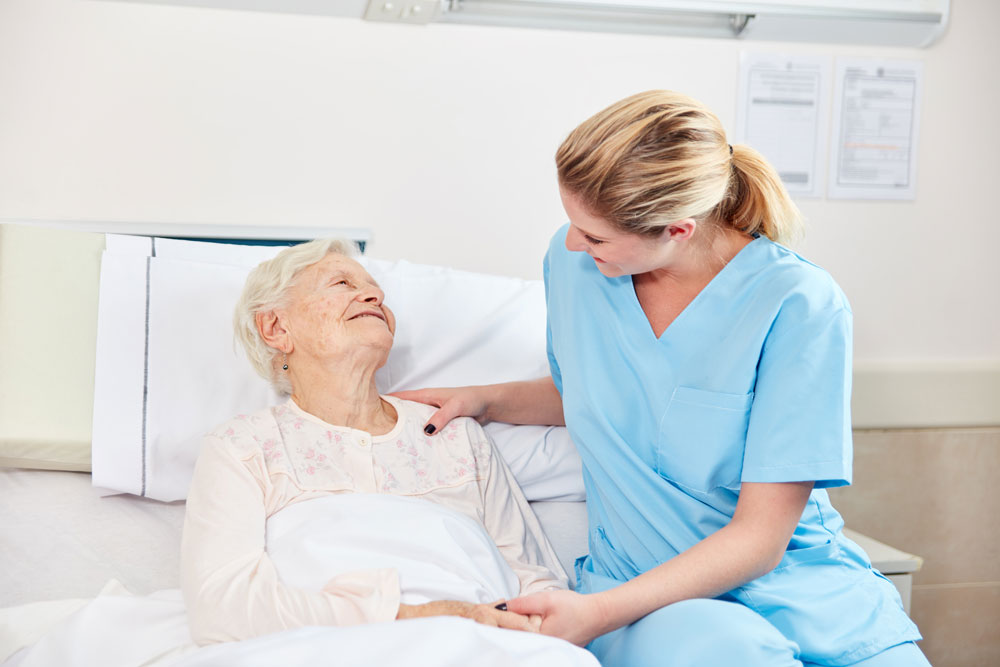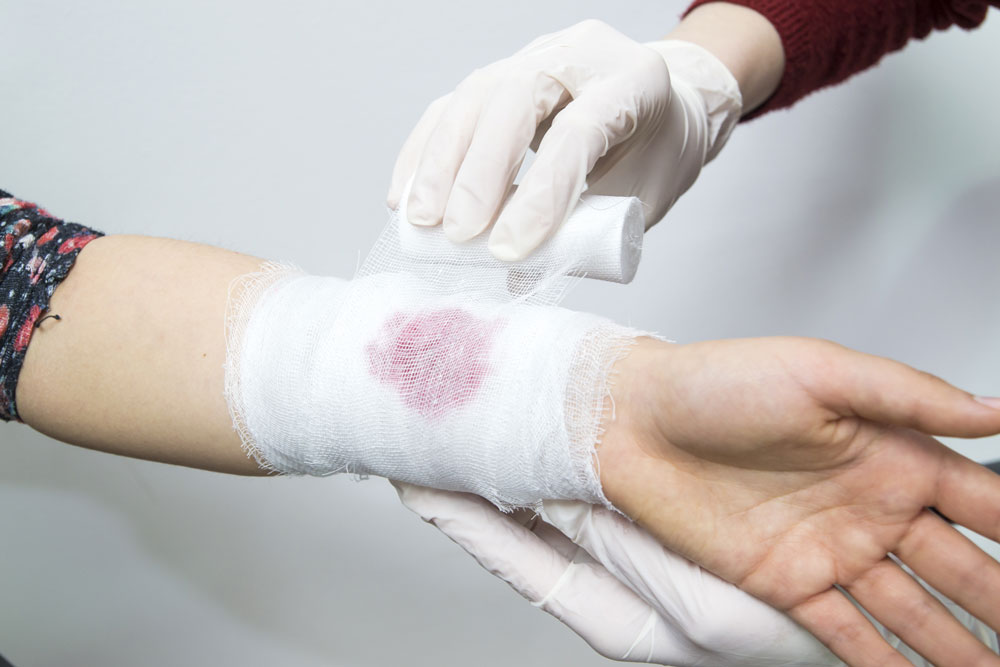Safety culture, order and tidiness
This AI translated article is based on Swedish conditions. Hopefully, it can inspire those interested from other countries.
Security aspects at a nursing home require considering the work environment, patient safety, food safety, fire protection and more. A good safety culture at the nursing home is a fundamental prerequisite for providing security, well-being, and respect for the elderly. It requires education, cooperation, and continuous improvements. By prioritizing safety at the nursing home, we can create an environment where the elderly can age with dignity and security. It is an investment in their quality of life and well-being.
 Foto: Mostphotos
Foto: MostphotosA functioning safety culture creates comfort and patient safety
Negligence and deficiencies often take more time from the residents than having order and cleanliness at the core. It happens that things are not addressed due to shortcomings in the organization, which often frustrates employees. Representatives of the business excuse themselves by prioritizing the residents.
Reluctance to report deviations may be due to mistrust of management or colleagues. Underreporting of deviations is common. One problem is that the media reports the number of deviations without putting them in context. As a relative or quality manager, it is safer with an operation that reports a large number of deviations than one where no deviations are reported.
In a home, one cares about how it looks, that there is order and cleanliness. In nursing homes, visitors can see aprons, gloves, alcohol bottles or other materials for the execution of work that are fully visible in corridors and day rooms. It happens that common spaces are used as storage for incontinence protection, aids or consumables. Wall-mounted bottles of hand sanitizer may be justified.
Signs of a lacking safety culture
- Unlocked doors to storage rooms, laundries and cabinets can lead to people with dementia accidentally ingesting machine dish soap, cleaning products or other health hazards.
- Absence of, or misuse of, stair stops, gates, etc. can lead to the elderly/visually impaired falling or going down stairs in a wheelchair.
- Unlocked offices provide the opportunity for curious unauthorized persons to access information about the residents.
- Storage of material in corridors, leftover cleaning material, etc. can cause injury or obstruct evacuation in case of fire.
- Cords that are in the way and broken wall outlets and other things that are not repaired when they break can cause someone to trip and injure themselves or get an electric shock.
- Spills on the floor that are not wiped up.
Balance between homely, safe and hygienic
A difficulty with nursing homes is finding a balance between being pleasant, safe and easy to work with. There may be difficulties and a borderland where the property owner can or should take responsibility for certain actions, but does not do so despite information about shortcomings and needs.
As with everything in life, it's about finding a balance. Clinically clean can mean that the premises are more prioritized than the residents. In the old nursing homes, spaces were not accessible to the residents except on holidays. As a space to show off when many guests came.
Common areas should be available to the residents. Doors to spaces where records, medicines, and chemical products are stored should be locked. In units with residents who are confused or have intellectual disabilities, accidents have occurred where residents accidentally ingested corrosive chemicals.
If the operation is dependent on external help for repairs, they must be done relatively immediately. You cannot wait to address dangerous things. There must be safe procedures for reporting errors and follow-up of reported conditions being addressed. If these problems are not addressed, the problems must be elevated to a higher level.
For the chemicals that the operation orders, there should be product sheets. The operation must know how to act if someone gets something in their eyes or swallows a product. If you can't find the binder with product sheets, you can call poison information emergency via 112 and request poison information or 010-4566700 in less urgent cases.
At the resident's home
The resident's apartment gives signals about how the unit works. Signing lists that are out with coffee stains, dressing material or other medical equipment that is unprotected, food stains on the bed or dirty aids can be signs of deficiencies in the safety culture.
In one unit, the handling of medical products was a problem. There were wheelchairs and lifts in the corridors that served as storage. When asked how they would manage an evacuation in connection with a fire, they realized that it would not work. It was possible to find other solutions for how these wheelchairs and lifts should be placed.
The experience of homeliness and coziness varies greatly between different units. It is possible to create comfort without compromising on functioning hygiene routines and a good working environment. On the contrary, order and cleanliness are a basic prerequisite for both good hygiene work and comfort as well as a good working environment.
Private valuables
It happens that employees help the resident handle their money, payment cards, keys and other private belongings. Many residents are dependent on help with handling their own money. If nothing else, hairdresser and other personal expenses must be paid. It is important that there are safe routines so that no money disappears.
Some take responsibility for their money and others may have a relative, guardian or trustee who helps them with financial matters. More and more nursing homes have opportunities for safe storage in the resident's apartment but there should still be routines to ensure that nothing disappears. If the staff is to handle money, it should be written in the assistance decision or implementation plan.
The operation must set limits on how large amounts can be taken care of and have routines for how the manager is informed that the operation is responsible for the resident's money. If the operation takes responsibility for private property, it may be necessary to pay compensation if money disappears. Access to private funds should be limited to a few.
It must be possible to trace what happened if money is missing and routines for regular counting. One way to count is for two people to count the money together and sign that the sum matches what is booked. If a long time passes between counts, it is difficult to remember what happened, such as the resident having their hair cut six weeks ago.
One way to limit the risk is to use payment cards where only the contact person has access to the code. Another way is for the card to be stored by someone who documents when it and the code have been handed out to an employee. For payment cards, the amount of money available can be limited. If you as an employee help the resident to shop with a card, always save the receipt and leave it together with the card after the purchase.
Storage of valuables
Never accept jewelry, bank boxes, or codes for mobile bank ID or anything that could be theft-prone. Employees should never withdraw cash for the resident. However, employees can accompany residents to the bank or ATM if the resident wishes. There should be a written agreement with the resident or their representative if the operation is to assist with handling money.
If someone passes away or moves, the money must be finally accounted for. Of course, receipts should always be saved. If these are numbered and entered, it is easier to follow the withdrawals. Handling the resident's money is subject to confidentiality. Cash books and other documentation on how the money is used should therefore be handled with care. Staff should not be responsible for paying bills for the resident. If this type of help is needed and there are no relatives who can be authorized to help, the resident must apply for a guardian.
By keeping a book of withdrawals and saving receipts, employees and the resident or the person helping the resident can reconcile and double sign when the cash is topped up. A written power of attorney or agreement on how the money should be handled and how the resident's representative should be informed creates safe routines.
A difficult situation that sometimes arises is that the resident lacks money. It can become really troublesome, for example, if the resident cannot get their medication from the pharmacy. There are solutions such as Payex medicine that prevent that risk from occurring.
Nurses must have a power of attorney to pick up the resident's medication. It can be a miss from the person helping the resident with money, but sometimes there is no money. Then the resident can apply for social assistance to meet their necessary needs.
Reflection - safety culture, order and cleanliness
Care staff:
• Do you have a good safety culture?
• Do you talk about risks and why it is important to follow routines and keep order and cleanliness?
• Do you have functioning routines for the residents' money and other valuables?
Manager, nurse, occupational therapist and physiotherapist:
• Do you investigate deviations thoroughly and does the person who reported the deviation get feedback on measures taken?
• Do you get broken things like blinds repaired quickly?
• Do you have a good check on the medical technical products (wheelchairs, lifts, walkers etc.) being safe and stored in a reassuring manner?
• Has it happened that money disappeared?
Resident and relative:
• Do you feel that there is a good safety culture?
• Do you feel that there is order and cleanliness?
• Is the handling of private money secure?
Erland Olsson
Specialist nurse
Sofrosyne - Better care every day

Aktuellt i media
-
2025-09-12 04:00
14 Läkemedelshantering
Effective management of medication reviews at the nursing home - What a medication story should contain
info Foto: Mostphotos
Foto: Mostphotos - 2025-09-08 04:00 16 Sjukdom och död
- 2025-09-04 04:00 07 Riskhantering
- 2025-09-01 04:00 09 Mat och måltid
-
2025-08-29 04:00
04 Bemötande
Working with participation is an obvious quality factor in all care for fellow human beings.
info Foto: Mostphotos
Foto: Mostphotos - 2025-08-25 04:00 14 Läkemedelshantering





